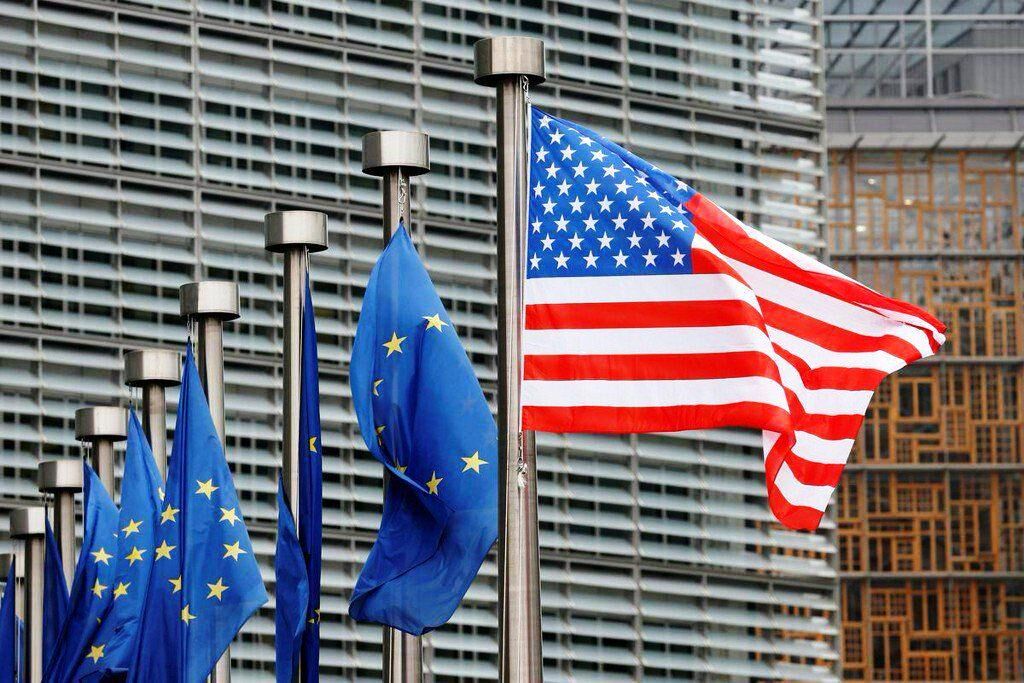When Russia began its war in Ukraine on February 24, the US and its European allies rushed to help Ukraine, providing it with financial and military aid while imposing sanctions on Russia to “punish it over the invasion” of Ukraine.
The sanctions targeted Russia’s economy and its energy sector to “weaken Moscow”, as stated by the West.
Russia, in response, reduced energy supplies to the European Union, making things difficult for Europe which heavily relied on Russian energy and now had to find alternatives, especially during the cold season.
As part of attempts to reduce their reliance on Russia, EU countries turned to gas from the US; a move which caused them trouble again, because they have to pay at prices almost four times higher than the same fuel costs in America.
Different European officials have expressed dissatisfaction over the issue, with French President Emmanuel Macron calling high US gas prices “unfriendly” and Germany’s economy minister demanding Washington show more “solidarity” and help reduce energy costs.
The US however has rejected those complaints, blaming what it calls Russian President Vladimir Putin’s energy war against Europe for the rise in gas prices on the continent.
Washington also says that it has “dramatically” increased exports of liquefied natural gas to Europe to enable it “to diversify away from Russia.”
That didn’t put an end to Europe’s complains, as another source of discontent emerged in recent weeks after US President Joe Biden signed into law the Inflation Reduction Act (IRA); a huge package that includes a $369 billion industrial subsidy scheme to support green industries.
The scheme has caused more fears for the EU which believes that Washington is going ahead with its domestic projects at the cost of causing trouble for European industries.
That’s because businesses are planning new investments in the US or even relocating their existing businesses away from Europe to American factories, according to POLITICO.
Washington again has defended its IRA plan. "This is not a zero-sum game. The IRA will grow the pie for clean energy investments, not split it,” a spokesperson for Biden's National Security Council has said.
But the Europeans are not convinced.
"The Inflation Reduction Act is very worrying. The potential impact on the European economy is very big,” Dutch Trade Minister Liesje Schreinemacher has said.
And, Tonino Picula, the European Parliament's lead person on the transatlantic relationship, has accused Washington of “following a domestic agenda, which is regrettably protectionist and discriminates against U.S. allies.”
Similar comments have been echoed by French Economy Minister Bruno Le Maire who said these are “discriminatory subsidies that will distort competition.”
Some European officials have even raised doubts that whether the US remains any ally any longer.
“The Inflation Reduction Act has changed everything. Is Washington still our ally or not?”, POLITICO reported an EU diplomat as saying.
High energy prices and the green subsidies are not the single issues for which the EU is furious at the US.
As reported by POLITICO, there’s also growing irritation about the money flowing into the American defense sector in the wake of the Ukraine war.
According to the US-based newspaper, the US has been the largest provider of military aid to Ukraine, supplying it with more than $15.2 billion in weapons and equipment. That’s almost double the amount of the military aid announced by the EU top diplomat Josep Borrell.
While the Pentagon is already developing a roadmap to accelerate arms sales, fears are growing in Europe that America’s defense industry can profit even more from the Ukraine war.
That’s because, according to a senior European official cited by POLITICO, that restocking of some sophisticated weapons may take “years” due to problems in the supply chain and the production of chips.
“It’s not good, in terms of optics, to give the impression that your best ally is actually making huge profits out of your troubles,” another EU diplomat said, as cited by POLITICO.
4194**1583
Follow us on Twitter @IrnaEnglish



Your Comment